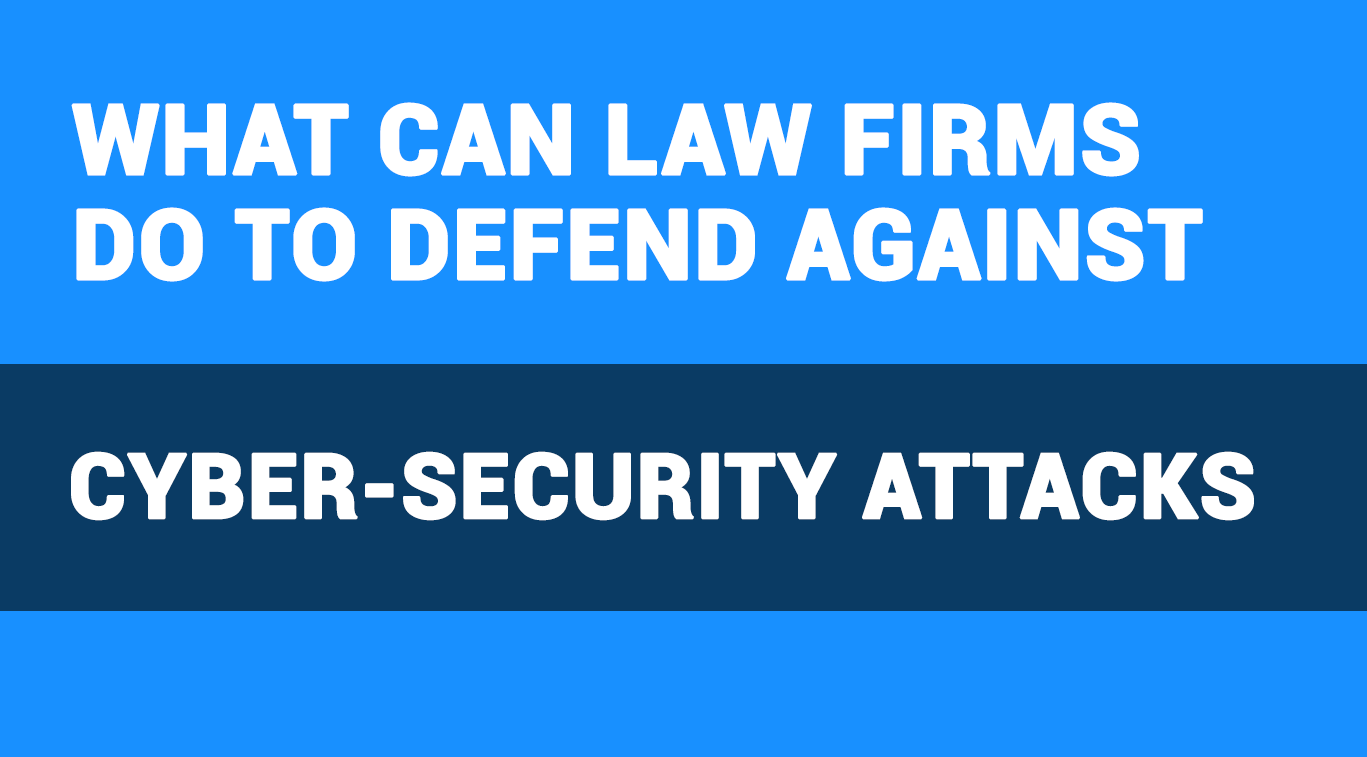What Can Law Firms do to Defend against Cyber-Security Attacks?

Written by Ginevra Tortora
Blogger

Cybersecurity has become a critical issue for the reliability and growth of public and private organisations of all sizes and types. The development of technology and the increasing use of the cloud have made digital information assets a crucial but equally vulnerable asset.
With all of the sensitive and frequently personal data law firms store, it’s no surprise that law firm cybersecurity threats are at an all-time high. No matter the practice, law firms maintain a wealth of vital client information, valuable intellectual property, sensitive business information, and other confidential or proprietary data. As the legal industry shifts to remote and hybrid work, cybersecurity has never been more of a concern for law firms. According to an analysis conducted by PricewaterhouseCoopers in 2017, as many as 60 percent of law firms in the United Kingdom reported having experienced cybersecurity incidents. Still, a tiny percentage of them responded promptly to the attacks[1].
In 2016 a report on The Guardian talked about the ‘industrialisation of cybercrime,[2]’having seen in cybercriminal works complex operations akin to businesses, with human resources departments and budgets for research and development. And things have moved on even further since then.
What to do to avoid serious cybersecurity threats in your legal practice?
The General Data Protection Regulation (GDPR), implemented in the United Kingdom by the Data Protection Act in 2018, directly impacts law firms’ operations. It requires considering the appointment of a Data Protection Officer (DPO), conducting Data Protection Impact Assessments (DPIAs), and implementing technical and organisational security measures, as the following.[3]
Data storage & encryption
Indeed, lack of encryption is hazardous for the safety of client data, especially for staff working on their devices at home, out of the office or travelling with them on public transport. When the Solicitor Regulation Authority visited 40 firms to verify the impact of cyberattacks, they found that half of them had allowed unrestricted use of external data storage media, and 25% did not encrypt their laptops. As a result, the SRA recommended that it is essential that policies and procedures reflect the risks posed by allowing staff to use external storage media in terms of exposing the firm and its clients to viruses but also the risk of compromising client data. Data and IP are critical to law firm operations. Attackers often install malicious software to block access to computers or the data they contain, asking for a ransom to return the data (known as ransomware). This is a major concern for legal management as just one ransomware attack could render vast volumes of data inaccessible.
With regular backups, however, a ransomware attack isn’t as critical. All vital data is copied and stored on an external hard drive or a secure location separate from the network, ensuring the information is still accessible and safe during a cyber-attack. Backups also minimise the downtime a law firm may experience from an attack[4].
Implement cyber-security training
Following their visit, the SRA found that 20% of the firms never provided staff with specific cyber training, and 50% had provided it but did not record details and evidence of the activity. So, it was reported that there was room for improvement. Of course, training is crucial to enable individual solicitors and their firms to sign off their competency statements. The training records are required to prove that the law firm workforce, as a whole, is equipped to act in clients’ best interests and protect clients’ assets and money[5].
Regular updates and patches
Cyber attackers are good at finding ways around cybersecurity.
Software updates are usually performed to optimise performance or fix a bug, but they have the added benefit of shoring up cybersecurity. Patches are a bit different and are intended to address security vulnerabilities. These should always be applied as soon as they become available. With legal management software through a provider, software updates and patches are applied as needed, keeping security in a law firm’s network as strong as possible.
Strong Passwords
Solid and complex passwords are an excellent line of defence against cyberattacks. Passwords prevent full access to accounts and the sensitive information and data they contain about the business or clients[6].
Set a cyber security budget for the firm
A clear sign that a firm is paying due attention to cybersecurity is setting aside a budget for these risk areas. As the SRA Thematic Review found that only 5 of the firms visited had cybersecurity budgets, the Authority questioned whether firms presently see cybercrime as a high enough priority and are prepared for future challenges.
Firms must take general precautions to protect their information by using strong passwords, two-factor authentication, backup systems that can help restore data quickly, and regular system updates and security patches. But the people employed by the firm are a total defence when it comes to safeguarding computer systems[7].
Refrences
The SRA is a good source and watch out for news about law firm mishaps in the Law Society Gazette. The National Cyber Security Centre is another trusted resource, and it has an excellent news page highlighting what is happening in the world of cyber scams.
[2] Rob Davis, ‘Companies must ‘take the fight to the criminals’ to tackle cybercrime, The Guardian
[3] Power of attorney, How Law Firms Can Strengthen Their Cyber Security (Traveler 2017)
[4] The Access Group ‘Cyber security for law firms: everything you need to know for 2022’
[5] Id
[6] N (1)
[7] N (3)








